Books from Italy
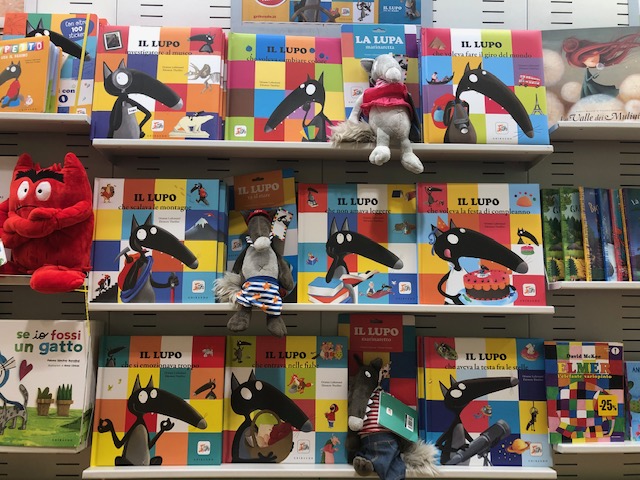
Just back from a family holiday in Italy where I once more had to struggle with not being able to communicate as I wished. I understood quite a bit thanks to Spanish and, to a lesser extent, French, but couldn’t formulate sufficiently coherent sentences to say what I wanted to communicate most of the time, thus resorting to a few words and a gesture with a pleading smile. In fact, I found that German was more helpful at times for the first part of the holidays as we were in Trentino-Alto Adige/Südtirol and often people didn’t speak English but understood German. Added to my ‘angst’ was the fact that all my attempts at Italian were met with replies in English, particularly in Bologna – I guess they thought they were being helpful but I was trying hard and it was a little disheartening!
However, I was in my element when I found the bookshops! My poor family tolerated me dragging them into at least four on our wanderings without moaning although I actually think they were glad of the air conditioning and a rest! I had my eye on a children’s book shop in the Piazza Maggiore but it was sadly shut when we returned to Bologna for holidays! Chiuso per Ferie was a phrase we learned very quickly! Nonetheless I still found others and treated myself to three books – I could have bought far more but as I don’t teach Italian, I was restrained and really thought hard about my choices.
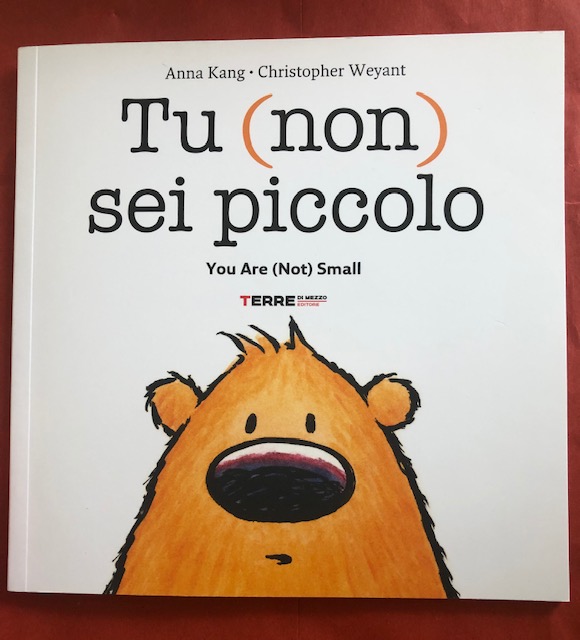
Tu (non) sei piccolo is a bilingual book with the Italian in large type and the English a little smaller below. It’s a really simple book about some bears who are arguing about being big or small. What I particularly liked, apart from the bilingualism, was the repetition for the verb to be in 1st and 2nd person singular (I and you) and 2nd and 3rd person plural (you and they) as this gave me a good idea about how the verb ‘works.’ Additionally, the same two adjectives are used which meant that I could draw some conclusions about the behaviour of adjectives – much like panino/panini and cappuccino/cappuccini! It’s amusing too and I liked the illustrations of the different bears. It would be easy to adapt by changing the adjective and/or animal.
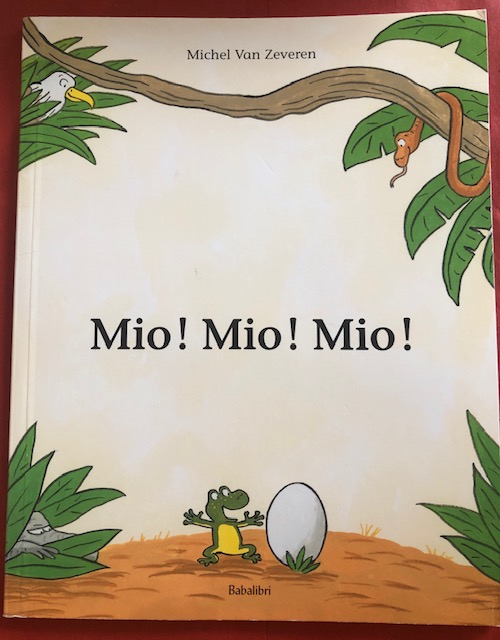
I chose Mio! Mio! Mio! as it’s also very repetitive and easy to understand. The little frog finds an egg and claims it as his own – Mio! But all the other animals say it’s theirs until it ends up hitting the elephant on the head – then nobody wants it and frog at last can have it. Then it hatches…
I enjoyed comparing animal names with the Spanish – l’elefante, l’aquila, il serpente – and discover a new one that none of my translating apps could work out – il varano which is a monitor lizard! The grammar was also similar – è mio! / ¡es mío! for it’s mine ; è suo! / ¡es suyo! meaning it’s his; I saw a similarity between chi for who and qui in French, and Allora te lo restituisco was easy to decode as I’ve give it back to you with the link to restitution. Finally, it also tickled me that it featured ‘un uovo’ as the boys were asked every morning if they’d like one in our wonderful B&B (if you’re ever going to the Dolomites, I can thoroughly recommend Agriturismo Florandonole )
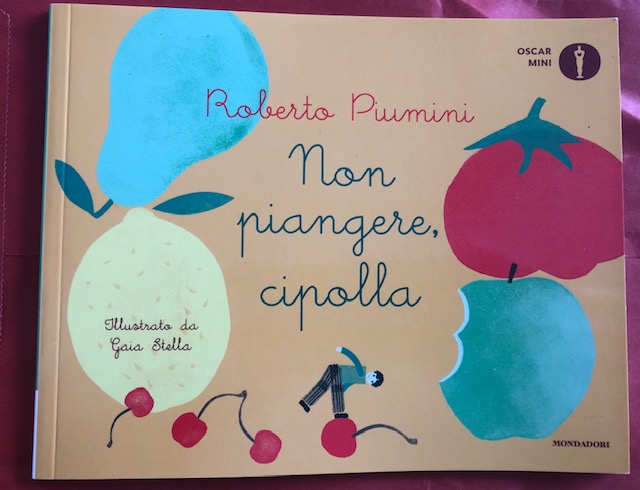
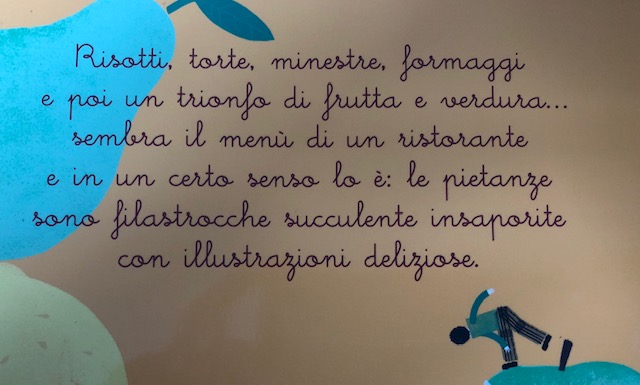
My final choice recognises the wonders of Italian food and drink. Non piangere, cipolla (Don’t cry onion) is a book of poems and verse organised in alphabetical order starting with Acqua and ending with Uva. These poems will need more concentration (and a dictionary!) to translate but I can get the gist of many of them. A couple of my favourites are below.
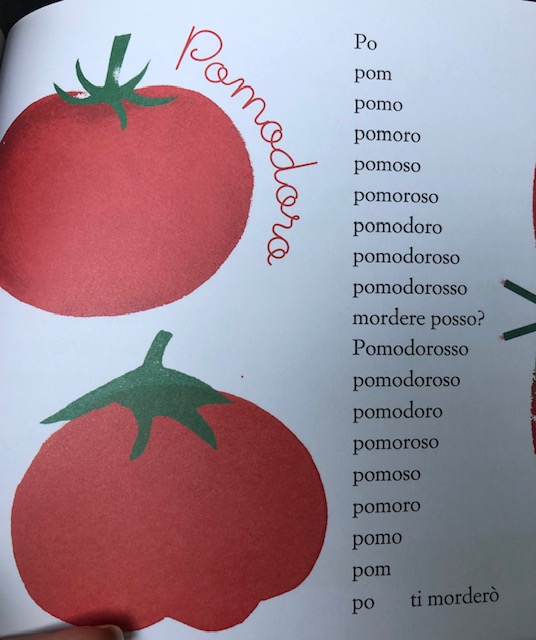
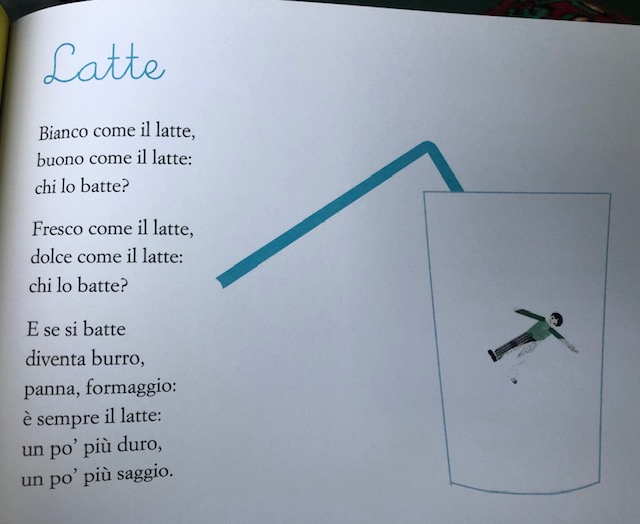
I’ve enjoyed reading all these books aloud, trying out my Italian pronunciation (which still needs work) and listening to how they sound. I’m looking forward to reading them ever more accurately, and also to understanding a little more as I reread them.


